Ebola Communication Preparedness Implementation Kit
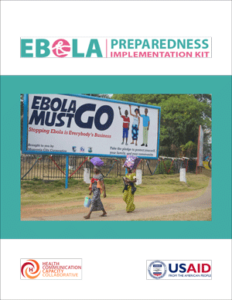 Now also available in French, this toolkit developed by CCP provides national and local stakeholders, as well as program managers, with key considerations and a roadmap for instituting and implementing critical, relevant, practical and timely communication for responding to the threat of an Ebola Virus Disease (EVD) outbreak. The I-Kit guides countries in social and behavior change communication (SBCC) and risk communication activity planning, including communication plan development for every stage of an Ebola response. For any country facing a major health crisis, national preparedness plans need to include and support communication efforts. Integration of communication into the preparedness agenda from the outset ensures that preparedness communication is harmonized, relevant, timely, financially supported and aligned among all of the preparedness technical teams. Robust national communication preparedness plans maximize the effectiveness of Ebola communication and equip communication trainers and experts with a common set of tools and modules.
Now also available in French, this toolkit developed by CCP provides national and local stakeholders, as well as program managers, with key considerations and a roadmap for instituting and implementing critical, relevant, practical and timely communication for responding to the threat of an Ebola Virus Disease (EVD) outbreak. The I-Kit guides countries in social and behavior change communication (SBCC) and risk communication activity planning, including communication plan development for every stage of an Ebola response. For any country facing a major health crisis, national preparedness plans need to include and support communication efforts. Integration of communication into the preparedness agenda from the outset ensures that preparedness communication is harmonized, relevant, timely, financially supported and aligned among all of the preparedness technical teams. Robust national communication preparedness plans maximize the effectiveness of Ebola communication and equip communication trainers and experts with a common set of tools and modules.
Sources:

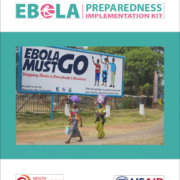
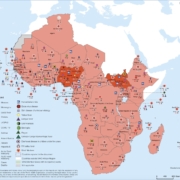
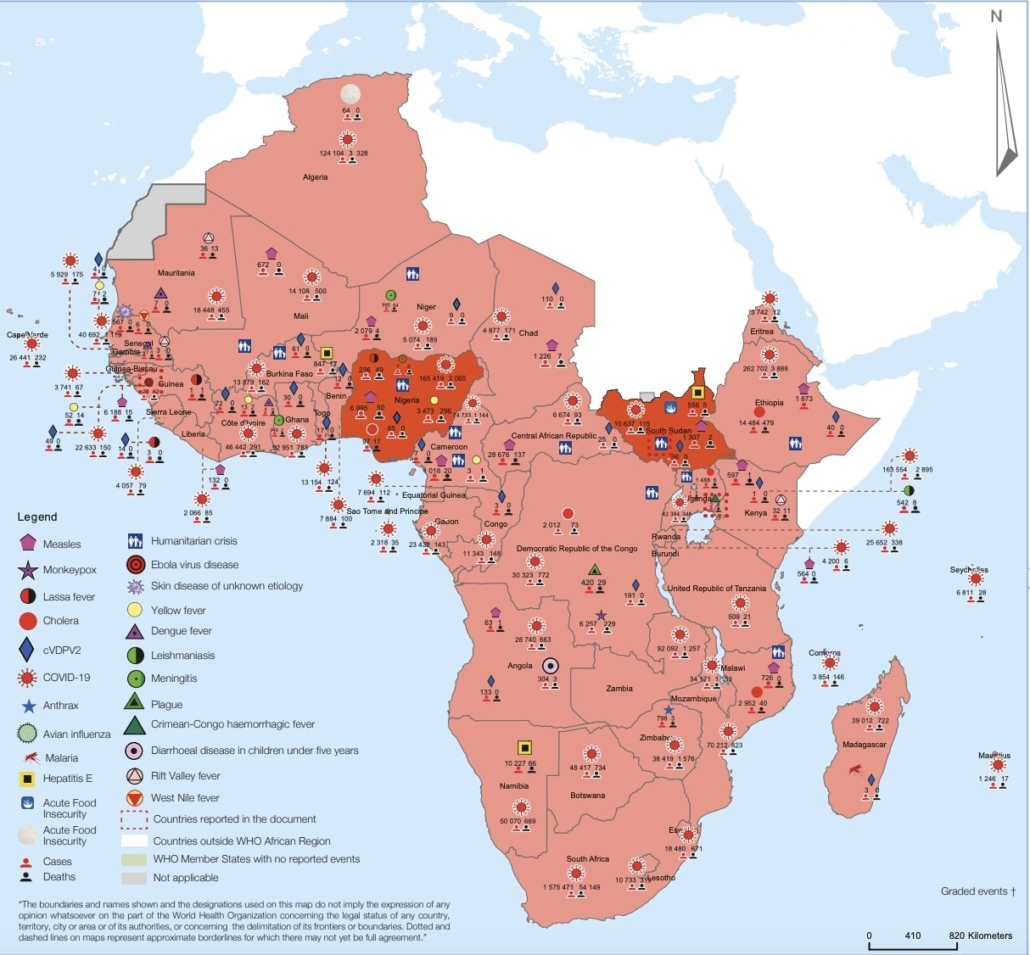 This Weekly Bulletin focuses on public health emergencies occurring in the WHO African Region. The WHO Health Emergencies Programme is currently monitoring 129 events in the region. Weekly articles cover a range of diseases and currently include, amongst others: COVID-19 across the WHO African region and Ebola virus disease in Guinea.
This Weekly Bulletin focuses on public health emergencies occurring in the WHO African Region. The WHO Health Emergencies Programme is currently monitoring 129 events in the region. Weekly articles cover a range of diseases and currently include, amongst others: COVID-19 across the WHO African region and Ebola virus disease in Guinea.
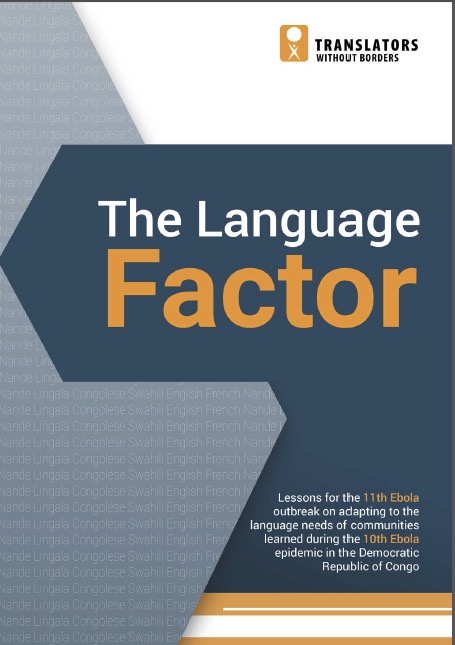 This resource provides lessons from previous Ebola outbreaks in the DRC on adapting to the language needs of communities and centers language as a key trust builder between communities and public health experts.
This resource provides lessons from previous Ebola outbreaks in the DRC on adapting to the language needs of communities and centers language as a key trust builder between communities and public health experts.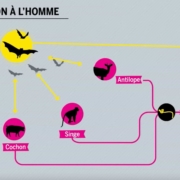
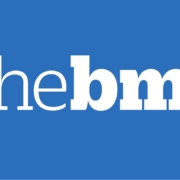
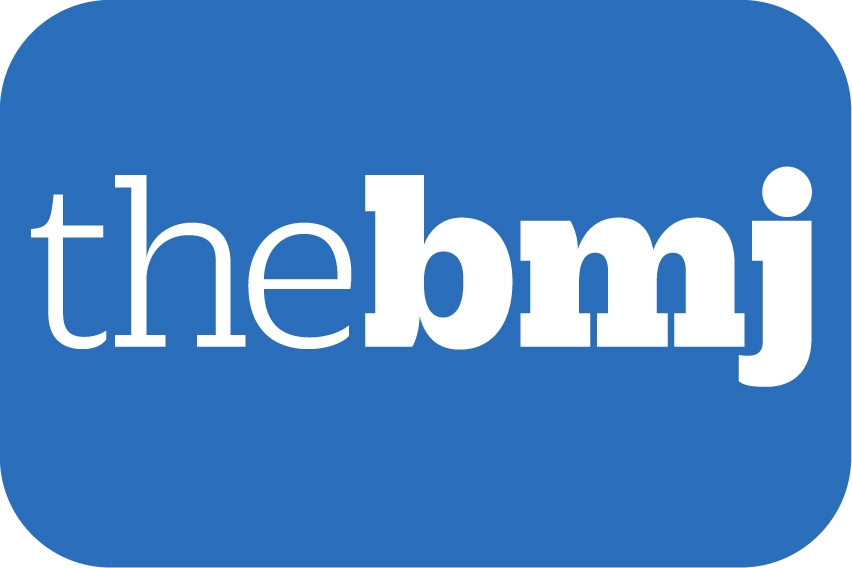 This journal article examines structured community engagement initiatives and real-time monitoring of community engagement activities during large-scale epidemics. Researches analysed the Community Led Ebola Action (CLEA) approach implemented through the Social Mobilization Action Consortium (SMAC) during the 2014–2016 Ebola epidemic in Sierra Leone, demonstrating how large-scale, coordinated community engagement interventions can be achieved and monitored in real-time during future Ebola epidemics and other similar epidemics.
This journal article examines structured community engagement initiatives and real-time monitoring of community engagement activities during large-scale epidemics. Researches analysed the Community Led Ebola Action (CLEA) approach implemented through the Social Mobilization Action Consortium (SMAC) during the 2014–2016 Ebola epidemic in Sierra Leone, demonstrating how large-scale, coordinated community engagement interventions can be achieved and monitored in real-time during future Ebola epidemics and other similar epidemics.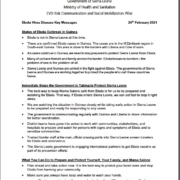
 2021- Developed by the Government of Sierra Leone, this resource features facts about Ebola, prevention, signs and symptoms, treatment and how to distinguish between COVID-19 and Ebola Virus Disease.
2021- Developed by the Government of Sierra Leone, this resource features facts about Ebola, prevention, signs and symptoms, treatment and how to distinguish between COVID-19 and Ebola Virus Disease.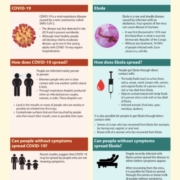
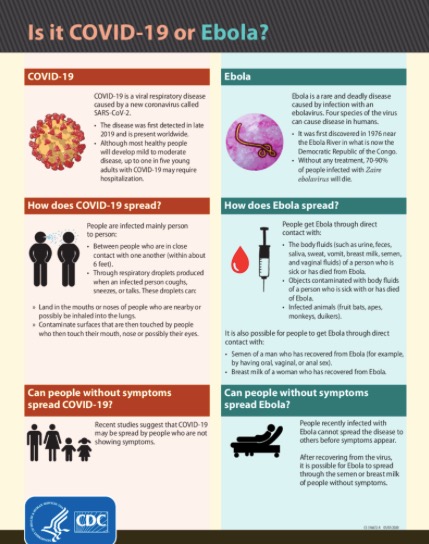 This fact sheet distinguishes between Covid-19 and Ebola in terms of cause, transmission, signs and symptoms and risk factors.
This fact sheet distinguishes between Covid-19 and Ebola in terms of cause, transmission, signs and symptoms and risk factors.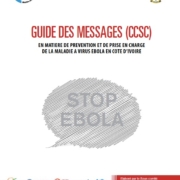
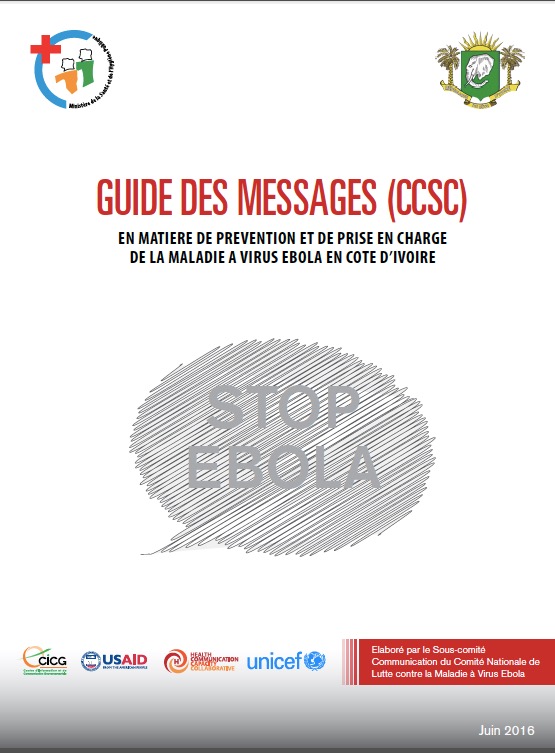 This message guide was produced in June 2016 to strengthen the coordination of the various information and education interventions developed to raise awareness about the Ebola epidemic in Côte d’Ivoire.
This message guide was produced in June 2016 to strengthen the coordination of the various information and education interventions developed to raise awareness about the Ebola epidemic in Côte d’Ivoire.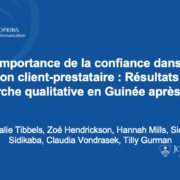
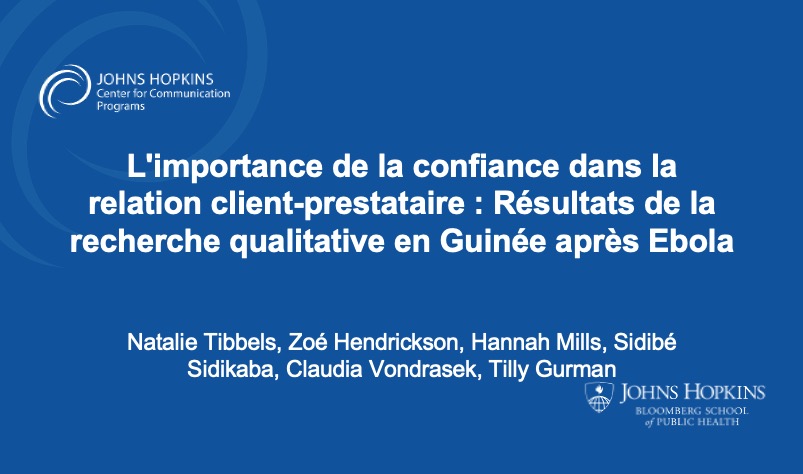 Preliminary results from research in post-Ebola Guinea focusing on patient-provider trust. The objective of this research is to identify how men and women in Guinea described their interactions with health providers in health facilities and the factors that contributed to trust, or lack of trust, in these facilities.
Preliminary results from research in post-Ebola Guinea focusing on patient-provider trust. The objective of this research is to identify how men and women in Guinea described their interactions with health providers in health facilities and the factors that contributed to trust, or lack of trust, in these facilities.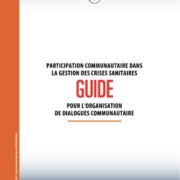
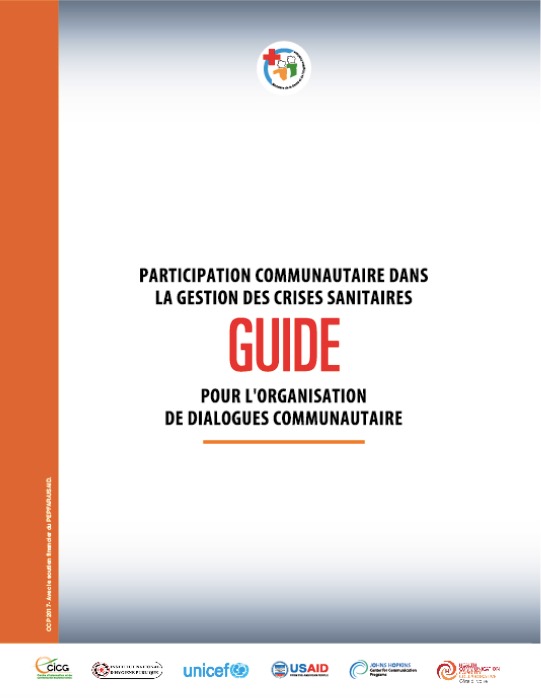 This Community Dialogue guide was developed to promote the active participation of communities in the response and prevention of health crises in Cote d’Ivoire.
This Community Dialogue guide was developed to promote the active participation of communities in the response and prevention of health crises in Cote d’Ivoire.